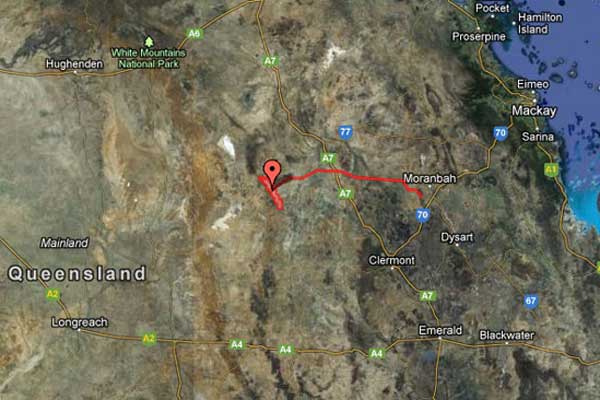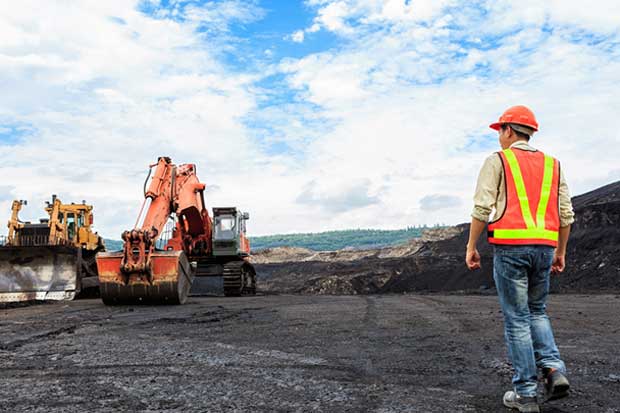A Queensland court has heard expert evidence from Adani’s own witness that the Indian company which wants to build Australia’s largest ever coal mine has drastically overstated the project’s benefits to the Queensland public.
And in other explosive evidence, a senior company official said he “could not comment” on speculation the company had been structured to siphon profits off to Singapore, Mauritius and the Cayman Islands, to avoid Australian company taxes.
Adani has long claimed that the benefits of its proposed Carmichael mine “will be felt locally, regionally and across Queensland, providing much needed job opportunities and generating around $22 billion in mining taxes and royalties in just the first half of the project life”.
That’s not really true, at least according to Dr Jerome Fahrer, who the company has engaged to testify for it in a five week Land Court review initiated by community group Land Services of Coast and Country (LSCC).
Royalties will actually amount to just $7.8 billion, Dr Fahrer said in his expert report.
And when Adani’s Group Financial Controller Rajesh Gupta took the stand on Friday, he conceded the “mining taxes” referred to are in fact corporate taxes, which flow to the federal government and will therefore be felt only in an indirect way across Queensland.
Adani’s corporate taxes, Dr Fahrer calculates, will add around $9.96 billion over the 30-year period under consideration.
Even allowing for the loose interpretation of “mining taxes”, that brings the ‘benefit to Queensland’ to something more like $16.8 billion, well shy of the $22 billion claimed.

Adani’s network of companies has already come under scrutiny, and last month faced calls for a government inquiry into its Australian interests after Fairfax revealed that while Indian billionaire Gautam Adani has been the group’s Australian face, his brother Vinod holds “pivotal positions”.
Vinod, who Fairfax reports may have ultimate control over Adani’s Australian interests, has been named in a criminal investigation into the alleged siphoning of $1 billion from Indian shareholders in three Adani companies to offshore accounts.
The Fairfax investigation also touched on the Adani’s “complex web of companies”, many of which trace back to well-known tax havens.
On Friday, lawyers from the Environmental Defenders Office who are representing LSCC took on the taxing job of teasing out some of those links from a guarded Gupta.
The court heard that Adani Mining Pty Ltd, the satellite company set up as a tax resident in Australia to apply for authority to mine, is a wholly-owned subsidiary of Adani Global Private Limited, a Singapore-based trading hub.
EDO lawyers asked Gupta whether the parent company would be used to, as Gupta put it, “optimise” the tax bill by taking advantage of Singapore’s five per cent company tax rate.
When pushed, Gupta responded with various iterations of “I, I, I can’t comment on that”.
The Group Financial Controller was then asked about Adani Global Private Limited in Mauritius, a country with a company tax rate of three per cent.
“I don’t know about – I don’t have any idea about it,” Gupta said.
Two other companies, this time associated with Adani’s Abbott Point Port extension required to export the coal, were shown to be subsidiaries of another Singapore-based company, which in turn is owned by Atulya Resources Ltd, based in the tax-free Cayman Islands.
Gupta had claimed that a report prepared by LSCC’s expert witness, global financial analyst Tim Buckley, was incorrect in its observation that the port-related companies were ultimately owned by Atulya, but eventually admitted they were “intended” to be.
The companies are yet to be ‘sold’, but for two years have been subject to a share purchase agreement which gives effect to their “intended” ownership by the Singaporean company, Gupta conceded.
New Matilda is not suggesting there’s anything illegal about Adani’s labyrinth of companies, but the evidence before the court reveals the extent to which its structure lends itself to ‘optimisation’, a burning issue in Australian politics at the moment, as large corporations avoid paying billions in taxes by structuring companies offshore.
Next week, the court will hear evidence from Buckley that casts further doubt on the company tax (or “mining tax”) Adani has claimed it will pay.
Buckley will testify that Adani appears to have calculated company tax at 32 per cent, rather than Australia’s actual company tax rate of 30 per cent.

Obviously, if the court accepts Buckley’s contention this would have the effect of further reducing Dr Fahrer’s $9.96 billion figure, and ultimately the mine’s benefit to Queensland and Australia.
Much of Buckley’s evidence will focus on the project’s bankability, and Adani’s ability to secure the capital it requires to finance the $16.5 billion mine. Much of his evidence will be heard in a closed court due to its commercially sensitive nature.
As New Matilda has previously reported, Adani has already suffered an exodus of major lenders including 10 of the top 20 banks which finance Australian coal projects, in response to environmental and community concerns.
The mine, and an associated port extension which would make Abbot Point Port the largest coal terminal in the world, will have serious adverse environmental impacts.
Most notably, vast volumes of coal will be shipped through the Great Barrier Reef before coming back to damage it after being burnt.
Earlier this month, as part of the Land Court proceedings, the mining giant argued that the world is on track to a 3.1 degree temperature rise and if they don’t dig up the proposed 60 million tonnes of coal annually, another, potentially foreign, company will.
Such a rise in temperatures, Adani’s expert witness conceded, would ultimately destroy the Great Barrier Reef.
The mining giant’s argument did not take account of the global climate pact to be negotiated in Paris later this year, which aims to limit global warming to below two degrees above pre-industrial levels.
It’s an environmental cynicism conservationists have consistently highlighted, and linked to serious environmental breaches Adani’s Indian companies have been found to have committed.
While Adani’s Carmichael mine has secured federal environmental approval, the Queensland Land Court must issue a recommendation after the case, before Queensland politicians can give it the green light.
Adani’s claims about the number of jobs the project will create have already been referred to the Australian Consumer and Competition Commission by the Australia Institute, which argues they have been inflated by 300 per cent.
Given that mining approvals are evaluated and issued using information provided by the proponent, the case will no doubt provide Queensland’s new Labor government plenty of food for thought.
Donate To New Matilda
New Matilda is a small, independent media outlet. We survive through reader contributions, and never losing a lawsuit. If you got something from this article, giving something back helps us to continue speaking truth to power. Every little bit counts.



